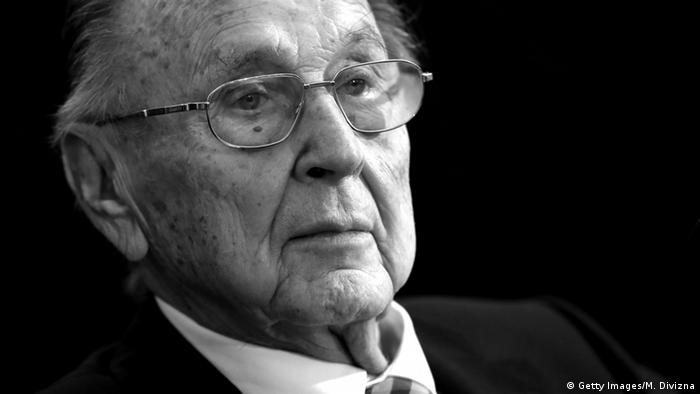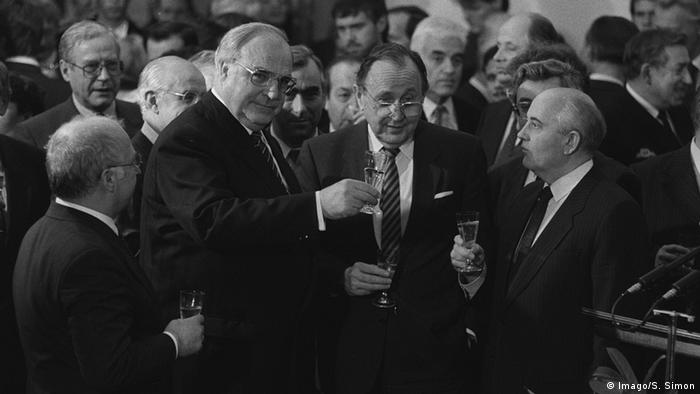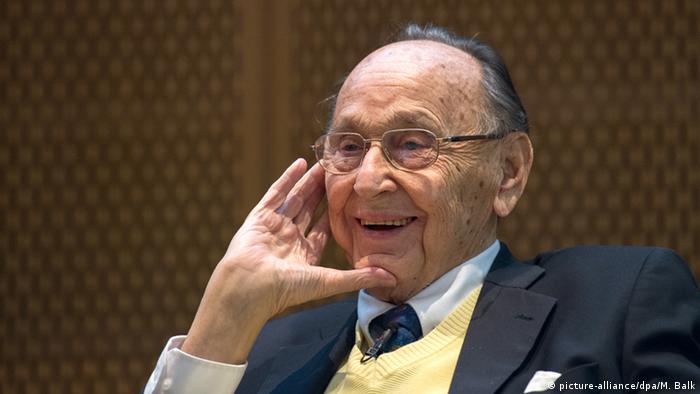Obituary
Acrobat of diplomacy – death of Hans-Dietrich Genscher
He was a politician, coined Germany. A statesman who contributed to the reunification of the country. He enjoyed worldwide recognition. In the night, Hans-Dietrich Genscher, has died. An Obituary.

“We came to you to inform you that today, your departure has been approved.” It is especially this phrase that will remain of Hans-Dietrich Genscher in memory. He spoke to him on 30. September 1989 on the balcony of the German Embassy in Prague. The last words were the cheering of thousands of GDR citizens who had fled from their country in the west-German mission, and since days in the Embassy garden to endure. It was the most moving moment was in his political life, he later in an Interview: “it was a cry of joy, as it is hard to imagine.”
A Diplomat through and through
Hans-Dietrich Genscher has held in the course of his life many of the political office – but no other has marked him as the foreign Ministry. To be called at the beginning, in 1974, many a “skillful lawyer of balancing” between East and West. With the disarmament initiatives of the “conference on security and cooperation in Europe” (CSCE), he developed in the 80s, his own policy of détente. With an unbroken willingness to engage in dialogue and negotiation skills, Hans-Dietrich Genscher, advocated for the end of the Cold war: “It is our aim in Europe to a state of peace, in which the German people have acquired in free self-determination of his unit again,” he said in 1975, in a speech before the General Assembly of the United Nations in New York.
Master of communication
Genscher’s Credo was “On the Other to go”: listen, engage and talk. With this strategy, it could occur on the one hand, massive, about, as he condemned in 1979, the invasion of Soviet troops in Afghanistan in the strongest possible terms. On the other hand, managed it with diplomatic skills, to remain as a conversation partner accepts.

Lawyer of compensation: Genscher at the signing of the agreement on German unity in 1990 in Moscow
Genscher’s time as foreign Minister, he began, as in Moscow’s policy, a reversal began to emerge. The Soviet Union pursued an economic and socio-political reform program, which allowed the Warsaw Pact countries – and thus also of the GDR for internal reforms.
Reunion with the old home
This development took Genscher on the occasion, the political leadership of the GDR to rethink. The protests of the people, who in East Germany for freedom and the Thousands of GDR citizens were living as refugees in Hungary and Czechoslovakia, in the German messages, helped to give to his demand.
With the German unit is a dream come true for Genscher: Especially as he himself came from East Germany. The “thickness with the big ears” as cartoonists, it always fondly signed, was born in 1927 in the vicinity of the hall – after the reunification, it drew him back time and again. As a member of the liberal democratic party of Germany, he experienced the early years of the Communist rule in the GDR. In 1952, cher took the gene to Bremen and became a lawyer.
Serious hours of a political career
As a member of the FDP held Genscher in the social-liberal coalition under Federal Chancellor Willy Brandt from 1969 to 1974, the office of the Federal Minister of the Interior. In this time also the attack by Palestinian terrorists on the Israeli team in the 1972 Olympic Games in Munich, took part fell. The taken hostage members of the team, a German policeman and five terrorists died in the rescue attempt killed: “That was the scariest day of my long tenure as a member of the Federal government. I wish every other man, that he must make such an experience, never,” said Genscher later. He tried at that time to achieve a release of the hostages in a peaceful way.

Genscher in the year 2014
Page exchange
From 1974 to 1992, Genscher held the office of the Federal Minister of foreign Affairs and was also a Vice-Chancellor – first in the Cabinet of the SPD-Chancellor Helmut Schmidt. In 1982 he returned of this coalition to the back and opened up a coalition with the conservative CDU/CSU: A step that many in his party, the bad and the not was him, as he later admitted, was not easy for the company because he appreciated Helmut Schmidt as a strong personality.
Because of criticism of his leadership style Genscher, in 1985, gave the party chairmanship. The FDP remained nevertheless true – since 1992, your honor Genscher, Chairman. Until recently, he repeatedly appeared as a promoter of young talent. Especially the recently deceased former party Chairman, Guido Westerwelle, was supported by Genscher significantly.
Caricatured and respected
From the active political career, withdrew Genscher in 1992. Many cartoonists took the with Regret: The politician Genscher was a popular motif. The magazine “Titanic” created “Genschman”. Based on the comic book character Batman, it represented him as the world Savior who copes with every crisis situation. Hans-Dietrich Genscher was 89 years old and will remain as one of the few German statesmen with world-wide fame in the memory.